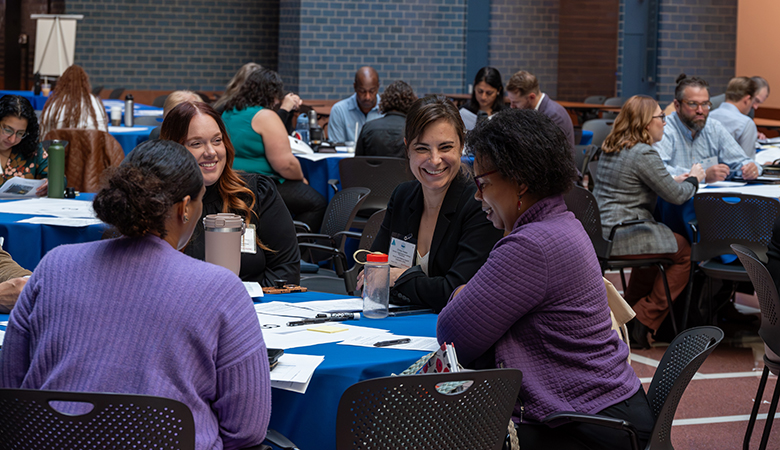A Whole-of-Government Approach to Federal Coordination of Place-Based Technical Assistance

The Bipartisan Infrastructure Law and the Inflation Reduction Act created once-in-a-lifetime levels of funding in federal infrastructure grants that are available to communities around the nation. Applying for federal grants is a resource-intensive effort with significant risk—not only for U.S. DOT, but for multiple federal agencies. The required labor and associated risk could result in historically disadvantaged and under-resourced communities missing out on opportunities to receive transformative infrastructure funding.
Technical assistance (TA) programs that support communities in both applying for federal grants and administering large infrastructure projects can help move the needle to ensure disadvantaged communities receive their fair share of funding. The Thriving Communities Network (TCN) is a recently launched program co-chaired by U.S. DOT and Environmental Protection Agency (EPA) that coordinates TA programs across 12 federal agencies. TCN is designed to help federal agencies coordinate strategy, collaborate across initiatives, and target deployment of a full range of place-based technical assistance and capacity-building resources to urban, rural, and Tribal communities experiencing economic distress and systemic disinvestment. The TCN effort is directly related to the Justice40 Initiative, which ensures at least 40 percent of federal investments in certain categories benefit historically disadvantaged communities.
The U.S. DOT Volpe Center participates in the TCN and provides expertise in Working Group Management and Data, Communications, and Mapping. U.S. DOT Volpe Center staff provide policy analysis and strategic planning expertise and advise U.S. DOT and EPA on ideas for charting a path forward for TCN.
Over the last year, the U.S. DOT Volpe Center has supported core TCN activities including a Capacity Builder Community of Practice Learning Series, a monthly peer-learning session for providing TA; a TCN quarterly newsletter; regular interagency coordinating committee meetings; developed an online TCN map; expanded and launched a TCN website; worked with Esri on a StoryMap to tell the TCN story; hosted an in-person capacity builder convening event at Department of Housing and Urban Development (HUD) in November 2023 and another at U.S. DOT headquarters in October 2024. As a result of this collaborative work, TCN’s partner agencies have grown, and additional federal agencies are on board to join the network. The TCN map illustrates the full extent of national coverage, reaching all 50 states across 12 agency programs.
In July 2024, the U.S. DOT Volpe Center team facilitated a TCN event in Manchester, NH that brought together numerous northern New England community members and stakeholders to share opportunities and successes. Representatives from U.S. DOT, Department of Energy, General Services Administration, Federal Emergency Management Agency, HUD, and U.S. Department of Agriculture attended, as did dozens of leaders from community-based organizations, state and local government, philanthropic groups, and technical assistance providers. During breakout sessions, attendees learned about the federal grantmaking process and how to access available funds. In sessions like “Planning Your Housing Project,” “Registering for SAM.GOV and Universal Employee Identification,” and “Planning and Building an Equitable Infrastructure for Rural Communities,” attendees heard from federal officials and technical assistance providers about the issues most relevant to their communities. There were numerous opportunities for networking and attendees could ask questions about current programs.
TCN’s work acknowledges that infrastructure problems are more easily solved with interagency collaboration. Under the related Thriving Communities Program (TCP), numerous communities apply for assistance to solve a transportation issue, but their existing infrastructure challenges are typically much broader. Of the 52 selected TCP communities in FY 2023, 15 (nearly a third) were already part of other TCN programs at other agencies, demonstrating the importance of interagency collaboration to solve challenging infrastructure issues that span energy, environment, housing, healthcare, and many other concerns.
About the U.S. DOT Volpe Center
Celebrating more than 50 years of federal service to the nation, the U.S. DOT Volpe Center’s mission is to transform transportation for all.
We're Hiring: Learn more about our open job opportunities, our commitment to equity, and what it’s like to work at the U.S. DOT Volpe Center.
